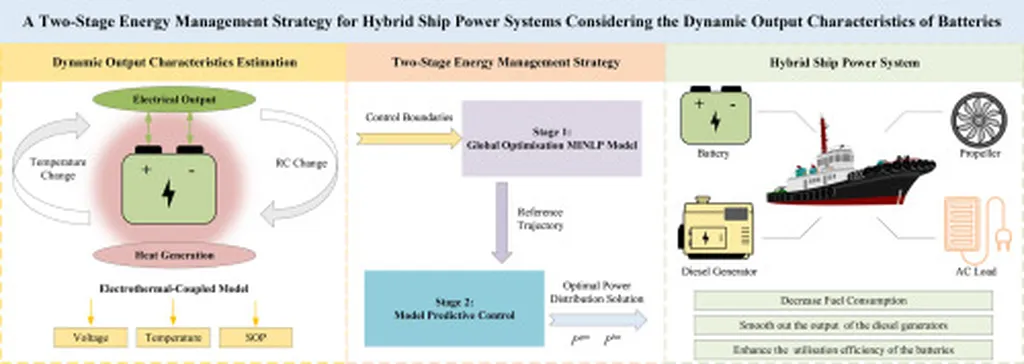In the quest for cleaner and more efficient maritime transportation, researchers are turning to innovative technologies that could redefine the future of shipping. A recent study published in the journal *Control and Automation* (Kongzhi Yu Xinxi Jishu) introduces a groundbreaking control strategy for onboard power supply converters in DC-grid hybrid ships. This research, led by HONG Xuewu, offers a promising solution to enhance fuel efficiency, reduce emissions, and improve system redundancy in hybrid ships.
The study focuses on the operation and control of electric propulsion converter systems in DC-grid hybrid ships. These systems integrate power electronic converters and energy storage technologies to optimize performance. The research proposes a novel method called “positive and negative sequence-dividing control” under the dq synchronous rotating coordinate. This approach ensures that the output voltage of the three-phase power supply converter remains balanced even when subjected to single-phase loads.
“Traditional control strategies often struggle with voltage imbalances under single-phase loads,” explains HONG Xuewu. “Our method addresses this issue by constructing a negative sequence reference through coordinate transformation, eliminating the need for digital low-pass filters. This results in a significant reduction in waveform unbalance, from 12% to less than 0.5%.”
The implications of this research are far-reaching for the energy and maritime sectors. As the global push for low-carbon emissions intensifies, hybrid ships equipped with DC-grid systems could become a standard in the industry. The proposed control strategy not only enhances the efficiency and reliability of these systems but also paves the way for more advanced multi-operation modes.
“Our findings demonstrate the potential of advanced control strategies to revolutionize the way we power and operate ships,” says HONG Xuewu. “This technology could lead to significant commercial impacts, including reduced fuel costs and lower emissions, making hybrid ships a more attractive option for commercial and environmental reasons.”
The study’s simulation and experimental results validate the effectiveness of the proposed control strategy, highlighting its potential to shape future developments in the field. As the maritime industry continues to evolve, innovations like these will be crucial in meeting the demands for sustainability and efficiency.
With the publication of this research in *Control and Automation*, the stage is set for further exploration and implementation of advanced control strategies in hybrid ship systems. The findings offer a glimpse into a future where maritime transportation is not only more efficient but also more environmentally friendly, marking a significant step forward in the energy sector.

